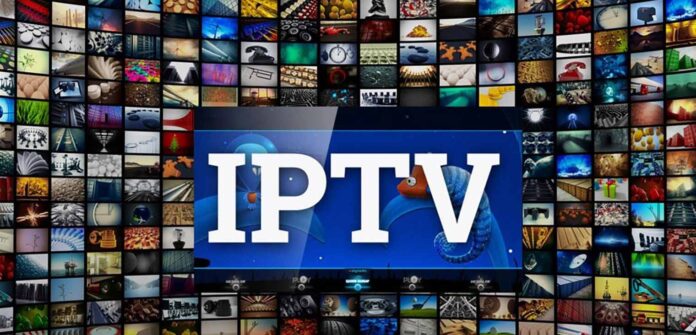In today’s ever-growing digital world, the advent of technology has brought about a vast array of innovations that have drastically transformed our daily lives. These changes have brought about a revolution in the entertainment industry, with consumers seeking more diversity and flexibility in the way they consume content. This is where IPTV comes in to play. IPTV stands for Internet Protocol Television, a system that allows you to watch television programs through the internet rather than through traditional terrestrial or satellite broadcasts.
IPTV delivers television services over the internet, providing users with a plethora of TV programs, movies, and other video content in real-time, on-demand and multi-screen formats. The beauty of IPTV lies in its flexibility and the wide variety of options that it offers users. Unlike traditional TV providers which only offer limited options, IPTV services give users the freedom to choose from a vast array of channels and programs to watch, with the option to pause, rewind or record their favorite shows. For more information visite on nordenstv.net
- Definition of IPTV
IPTV, or Internet Protocol Television, is a modern technology used to deliver television content over the internet. Instead of using traditional broadcast methods, IPTV uses an IP-based network to transmit video signals in real-time. This means that users can access TV channels, video on demand (VOD) services, and live broadcasting over the internet, anytime and anywhere without the need for a cable or satellite subscription. IPTV technology compresses video content and transmits it as digital data packets, allowing for high-quality image, sound, and streaming capabilities. IPTV can be delivered through various devices, including computers, smartphones, smart TVs, and set-top boxes. The user just requires a reliable internet connection to access the service. IPTV technology has revolutionized the way we watch television, and it’s becoming increasingly popular worldwide due to its high-quality content and convenience.
- Benefits of IPTV
IPTV (Internet Protocol Television) is a delivery method for television content and other multimedia services over the internet. There are several benefits associated with IPTV, hence its growing popularity over the years. Firstly, IPTV offers a wide range of content choices, including international channels and premium channels that are not available through traditional cable television. Users can access live TV shows, movies, and sports events with the convenience of pausing, rewinding, or recording the content for later access. Secondly, IPTV allows users to access content on multiple devices, including mobile phones, tablets, laptops, and smart TVs. This eliminates the need for additional equipment, such as cable boxes and wiring. Lastly, IPTV is cost-effective compared to traditional cable TV services, making it an attractive option for cost-conscious users. Overall, IPTV is a flexible and innovative solution for accessing multimedia content that allows users to enjoy a diverse mix of television channels and on-demand video content.
- Services Provided by IPTV
IPTV or Internet Protocol Television, is a popular technology that allows users to access TV programming and other multimedia content via the internet. There are several benefits to using IPTV, with one of the most significant being the range of services it provides to users. Three services offered by IPTV include live television broadcasts, on-demand programming, and time-shifted media. Live television broadcasts enable users to stream channels in real-time over the internet, providing them with access to live news, sports, and entertainment programs. On-demand programming, on the other hand, offers users access to pre-recorded content such as TV shows, movies, and documentaries. This service is ideal for those who prefer to watch their favorite shows on their own schedule. Finally, time-shifted media allows users to pause, rewind, or fast-forward through live broadcasts, providing them with greater control over their viewing experience. These various services provided by IPTV make it an attractive option for those looking for a cost-effective and flexible way to access their favorite TV programming.
Read Also: What Should I Ask Before Hiring a Personal Injury Lawyer?
- Potential Drawbacks of IPTV
IPTV, or Internet Protocol Television, is a popular way to stream TV channels and other video content through the internet. While IPTV offers numerous advantages, including a wide range of channels, flexible pricing options, and compatibility with various devices, it also comes with potential drawbacks that users should be aware of. One main concern is the risk of buffering or lagging, which can diminish the overall viewing experience. This issue can be caused by poor internet connectivity, high traffic on the server, or low-quality content. Additionally, not all IPTV providers offer reliable customer support or regular updates to their services. Some providers may also have limited access to certain channels or content due to licensing restrictions or geographical blocks. Finally, using IPTV services without proper authorization or subscription is illegal and can result in legal consequences. As with any technology, it is essential to weigh the benefits against the potential drawbacks when considering using IPTV.





